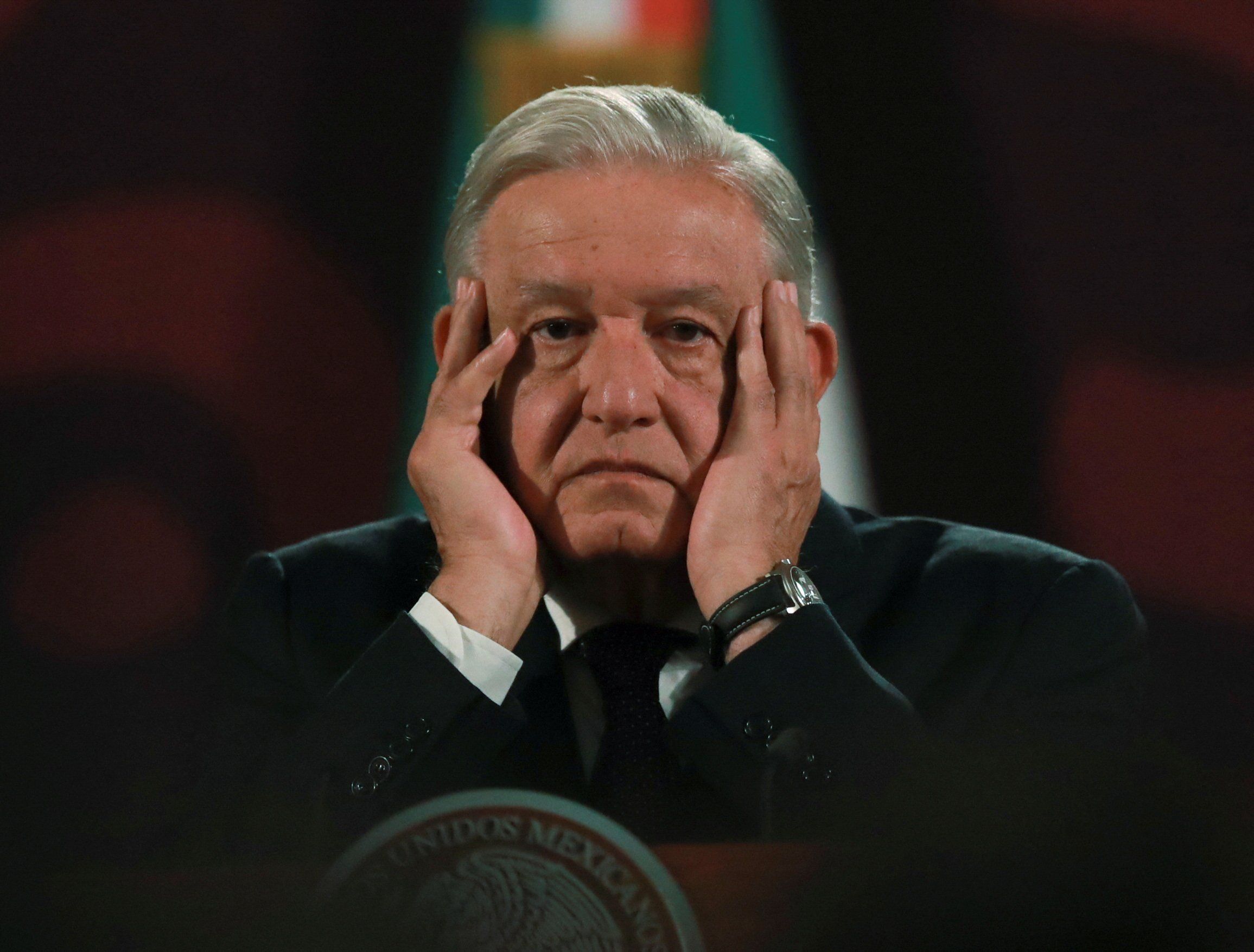Can the US-Mexico relationship recover from arrests of Sinaloa cartel leaders?
Mexico's President Andres Manuel Lopez Obrador gestures during a press conference after Mexico's Security Minister Rosa Icela Rodriguez informed of the detention of Joaquin Guzman Lopez, El Chapo Guzman's son, and Ismael "El Mayo" Zambada, at the National Palace, in Mexico City, Mexico July 26, 2024.
Last week, the US carried out “the largest sting against Mexican criminal organizations ever,” according to Eurasia Group’s Mexico expert, Matías Gómez Léautaud, arresting Joaquín Guzmán López, son of Mexican drug lord “El Chapo,” and Ismael “El Mayo” Zambada. The two are central figures of the infamous Sinaloa cartel, and as details arise, it is becoming apparent that Guzmán likely betrayed Zambada, tricking him into getting arrested.
“Zambada is seen by many as the real mastermind behind the Sinaloa cartel, even before the capture of El Chapo,” says Gómez Léautaud. “Guzmán, on the other hand, has several incentives to negotiate with US authorities who have targeted the Chapitos’s operations in recent years due to their involvement in fentanyl traffic.”
The betrayal. Zambada allegedly thought the two were flying to northern Mexico to look at real estate, but instead, their private plane landed north of the border near El Paso, where US authorities were waiting on the tarmac. “My client neither surrendered nor negotiated any terms with the US government,” said Zambada’s lawyer Frank Perez. “Joaquín Guzmán López forcibly kidnapped my client.”
In response, President Andrés Manuel López Obradorimplored the cartels not to fight each other over the detentions. “Violence will likely increase in the coming months and years as the power vacuum opens opportunities for mid-level leaders and other criminal groups,” says Gómez Léautaud, “If this is indeed the result of a betrayal, retaliation will likely be long, brutal, and with unforeseen ramifications.”
Critically, the US did not collaborate with Mexican authorities. Obrador wasembarrassed to admit he knew nothing about the operation until it was over, which Gómez Léautaud believes is likely a sign that “collaboration on security issues has broken beyond repair during [Obrador’s] administration.”
“The lack of trust and the fallout from the operation will hinder the incoming administrations' leeway on both sides of the border to further tackle security issues together,” says Gómez Léautaud.
